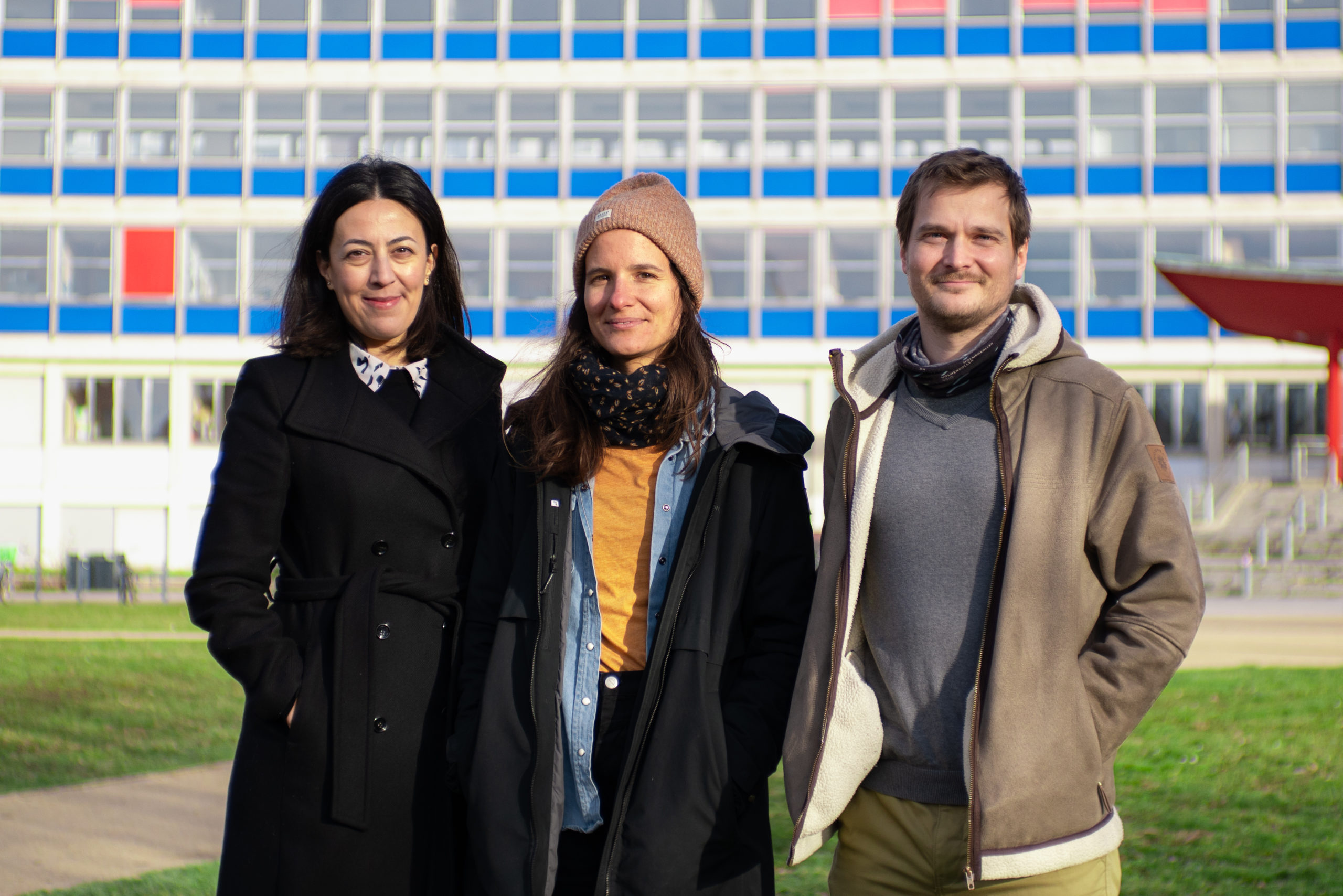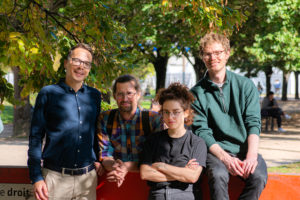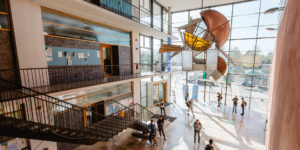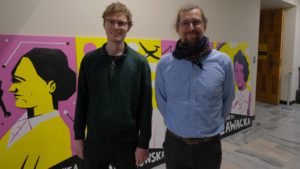Interview
What is your project about?
(Christian Dorninger) It’s an ambitious interdisciplinary project exploring how Europe can scale up its renewable electricity production, and eventually become self-sufficient. In our hypothetical case, we are trying to find out how we could fulfil specific European or national goals in the matter of renewable energy production, keeping in mind that by 2030, 42,5% of European energy should be produced renewably.
(Stefanie Klose) Additionally, our study delves into the intricacies of material requirements for erecting new electricity-generating facilities, quantifies the land footprint necessary for construction, and forecasts the labor force needed to bring these visions to fruition. Despite the challenges inherent in this ambitious assessment, our aim is to explore the legal frameworks and societal dynamics that must be navigated by states, politicians, and citizens alike in order to realize an amplified renewable electricity production landscape. Through this comprehensive approach, we seek not only to illuminate the technical feasibility but also to underscore the socio-political determinants essential to achieving our renewable energy aspirations
(Melis Aras) This project is very challenging from the legal point of view, we are working with actual legal framework within member states and EU, and sometimes national/local and regional/European environmental interests may be mismatched. In order to make our case realistic and trustworthy, we are looking into conflictual cases, notably on the ecological impact of mining activities, using environmental justice atlas platform (EJAtlas), and accessing European Commission data, such as published national energy and climate plans (NECPs). We must keep in mind that the objective of developing renewable energy facilities comes in response to the rising climate crisis, and there exists a pressing need to confront environmental and energy challenges, emphasizing the responsibility of Europe in fostering sustainable practices.
How have you picked up your team?
(Christian) I met colleagues during one of the EPICamps, then I contacted the Scientific Advisor of Steffi, as we needed more people specialising in energy transition. Melis was in an Interreg project called “RES-TMO Project” with Freiburg, so this is how we had her contact.
What does working in a transversal and multicultural team bring?
(Stefanie) This collaborative effort provides a unique opportunity to gain deeper insights into diverse perspectives on our specific subject and to grasp the full scope of the issue at hand. Without the input of an interdisciplinary team, I could only skim the surface of a domain in which I lack specialization.
(Melis) Sometimes we have to integrate methods from other fields of study like system-dynamic modelling in our work; it gives an added value to the research and makes it more impactful.
(Christian) Any interdisciplinary research, first, requires a lot of discussion. Our perspectives and interpretations of a subject may sometimes be different, so it is through constant discussion that we achieve the common understanding and start working on a strategy. Even if we deal with the same final issue – environmental impact and resource use, – our methods and methodology are quite different.
What kind of results are you waiting for?
(Christian) We would like to get an overview of how many resources it would require to become sustainable using only the renewable energy, and to what extend it could be achieved within European boundaries and international trades that are already in place.
(Stefanie) Our objective is to synthesize these insights into a system-dynamic model, enabling us to identify the obstacles and potential push and pull factors essential for navigating the energy transition. Ultimately, our aim is to formulate policy recommendations regarding renewable energy production and the regionalization of material requirements in Europe.
(Melis) I think that through this project we can bring more awareness about the sustainable energy transition and the regionalisation concept. Our project could bring some insights of transition’ legal aspects, too.




